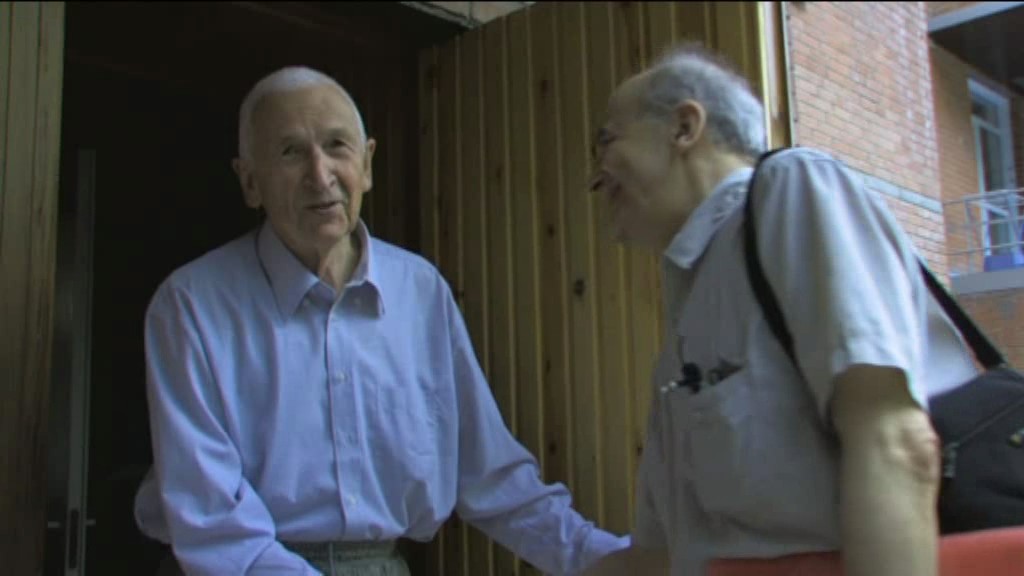
At Borovkov's cottage in June of 2011.
Borovkov was not always an octogenarian and he was not always an academician. But he was always Borovkov. One of the circumstances behind this is worth to be distinguished: Borovkov had taken responsibility for science once ago and has portered the burden ever since then. This is a tough choice and meritorious service.
Responsibility challenges and tortures any man. Everyone strives for their personal freedom and independence. Responsibility restricts freedom heavily. The responsible scientist cannot be self-sufficient. Self-sufficiency in science leads to lethargy and provincialism. A self-sufficient scientist is a nonsense if not an oxymoron. The scientist by belief is responsible for not only his surveillance tower at the border with the unknown but also the entire realm of science which safeguards man from the environment and himself either.
Borovkov's tower is stochastics. Certainty does not belong to people. The world around us is so complicated and diverse that we cannot ignore the deficiency and randomness of our knowledge and observations. Man lives in the world of chance. To see the patterns behind our own ignorance is the task of probability and statistics. Luckily, the ignorance is versatile and homogeneous: the mankind encounters a plentitude of the independent random variables that are by and large identically distributed due to the universal gaps in our knowledge. A human weakness—ignorance—turns into the power of limit theorems and the law of large numbers.
Modern stochastics is often positioned as a branch of measure theory. This is somewhat imprecise. Measure theory goes back to geometry which grew out of the legal procedures requiring complete definiteness and unambiguity in application. Aristotle's logic followed geometry and reflected its methodology. Probability has its roots not in jurisprudence, but in the procedures of soothsaying and fortune telling, which means predicting the future from random or mystical experiments.
The probabilistic and deterministic views of the universe are the two sides of man's outlook. These are immortal and will never abandon humans. The relation between the deterministic logic and randomness was partially revealed by George Boole in his brilliant book An Investigation of the Laws of Thought on Which Are Founded the Mathematical Theories of Logic and Probabilities. The new approach of Andrei Kolmogorov revolutionized probability and mathematical statistics, resting on Boole's ideas. The measure-theoretic approach enriched the ways of thinking and the scientific methods of deterministic deduction and stochastic trial. However, complete understanding here remains far remote, and we still must work out a new outlook whose elements we encounter in modern physics, logic, and stochastics.
The role of probabilistic reasoning is underestimated. The mankind is in the very beginning of a better and more complete understanding of the nature which is based on quantum mechanics and quantum logic, on the diversity of topos formalisms, on variable, fuzzy, and stochastic conceptions and patterns. Borovkov is one of the sherpas on the tortuous path to the new frontiers of scientific thought.
The responsible scientist is a universal student and teacher of everything. Science is his neighborhood, and research is his vogue of life. A journal's article is a “memory knot.” A lecture is an invitation to a journey. A book is a traveller's itinerary and a user's guide. A textbook is a bridge to the unknown from the tower of knowledge.
Borovkov is faithful to science and has never betrayed it. To overpraise a man at eighty is impossible. We can be proud of his successes, sympathize with his difficulties, and thank him for what he did for us.
Thanks a lot, Aleksandr Alekseevich!
August 14, 2011

| English Page | Russian Page |